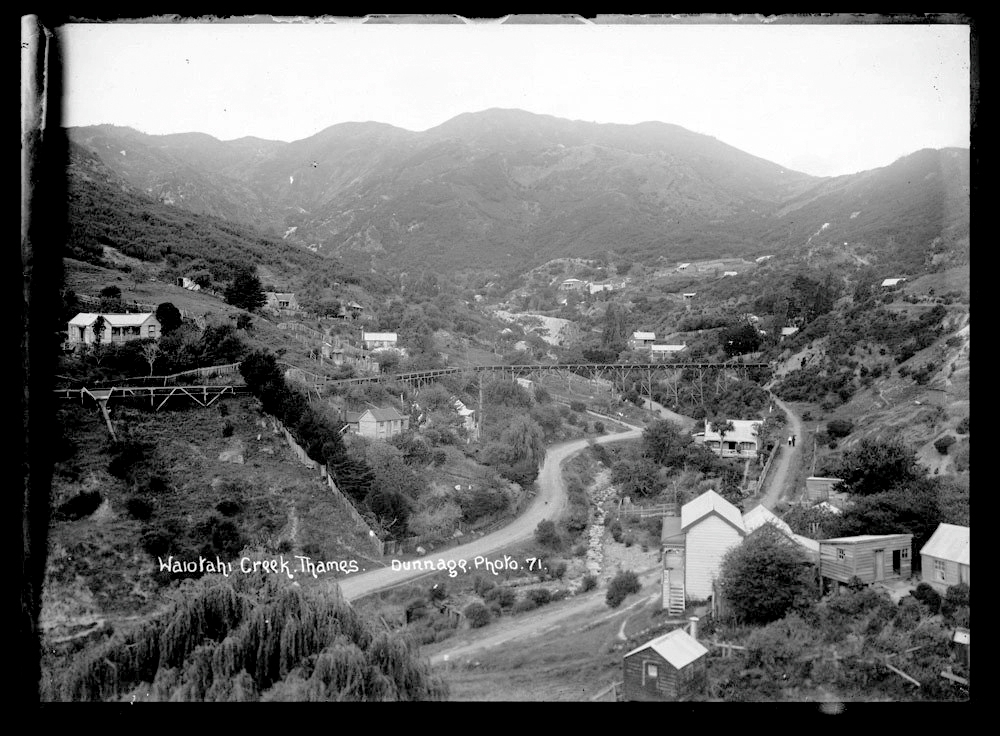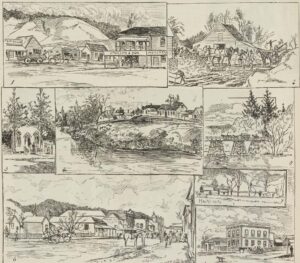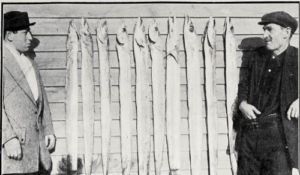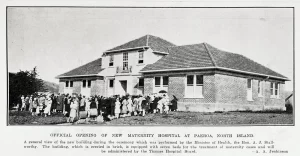As part of a Valley Profile series, MEGHAN HAWKES searches through old newspapers to bring you the stories Thames Valley locals once read about themselves.
1944
A disturbing earth movement in the Kauaeranga Valley section of the Thames water race led to the collapse of over 600ft of the race system.
The town was now dependent on a temporary supply from Mangakirikiri, and would be for some time.

The water supply was reduced by half, the use of hoses prohibited, and residents urged to make voluntary restrictions as an alternative to the turning off of the valves for a period each day. Great care had to be taken in the interests of health and to provide adequate water for firefighting. The borough engineer described the situation as critical.
BLACKBERRY STANDOFF
A kindly land owner at Paeroa had refused to cut the blackberry on his property during the war so as not to deprive residents of fruit in a time of scarcity. He replied to the Paeroa Borough Council, which had written asking him to have all noxious weeds controlled, that there were only a few blackberries growing on the roadside near the property. When war broke out he had arranged with a firm of contractors to bulldoze them, but as there was a great shortage of fruit due to the dry season and the government’s control of the pip-fruit industry; and to ensure that people would at least get some jam, he decided to leave them there. The blackberries also provided a shelter belt for the cows that supplied Paeroa with milk. He would have the weeds cut down now that the borough council had discovered them and inquired if he would see some of their employees in the near future. He signed off “Please forget about the blackberries —I won’t.” Laughter greeted the reading of the letter.
HOUSEKEEPER SHORTAGE
The need for housekeepers for farms was on the agenda at the Tauranga Primary Production Council. A deputation from the Women’s Division of the Farmer’s Union stated that a scheme had been in operation for many years where housekeepers had been provided temporarily to country homes needing assistance because of sickness or other causes. War work and essential duties had now taken all the housekeepers, and the situation was acute, causing cases of serious hardship. The Waihī district was in dire straits.
Formerly a housekeeper had been obtainable from Ngātea but no one had been available for some months past. Members of the WDFU and neighbours were called on to help often at extreme inconvenience and self-sacrifice.
HORSE BREAKS LAW
Barney, the Waihī Borough horse, broke the law when he ended up on the wrong side of the fence. Barney had a spirit of independence that urged him to seek green fields and pastures new; but his enterprise was curbed by the alert pound keeper, Mr Weeks, who took Barney into custody. Barney, when asked to comment on the incident, would say neither yea nor neigh. It was understood that this was Barney’s third conviction. Mr Weeks, in one month, impounded four cows, two horses, eight calves and one goat. The council described Mr Weeks as the best pound keeper they had ever had.




